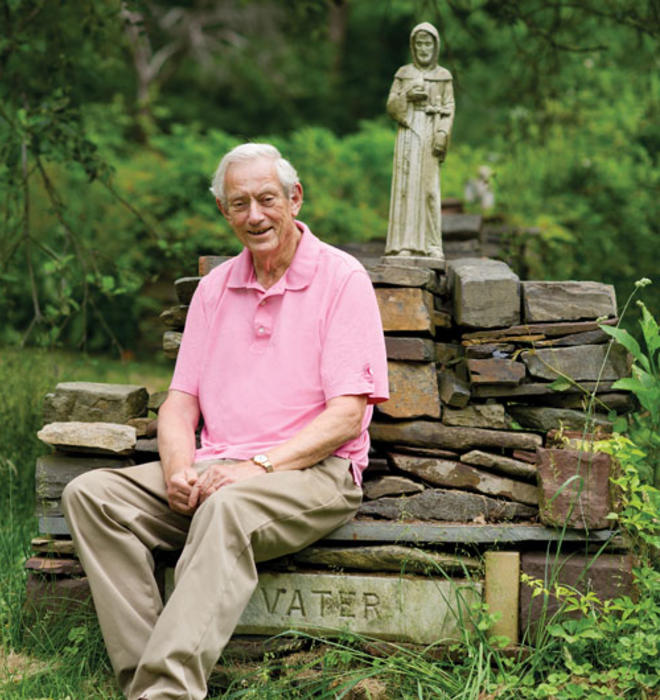
Hwaet! An honor for a Princeton ‘colossus’
The Association of Princeton Graduate Alumni honored John Fleming *63, a legendary professor emeritus of English and comparative literature and a perennial Reunions participant, who was marking 50 years since he received his Princeton Ph.D. A proclamation celebrated Fleming — well known for his courses on Chaucer and his affinity for Old English — as a “colossus of humane letters, polymath, Socratic pied piper, wise counsel, and friend,” promising the “full riche treasure of the University, with all honors, glory, and Reunions beer pertaining thereto.”
At a Reunions panel on the history of the Graduate College as it begins its centennial year, Fleming continued to instruct:
“Why do we march around in these old clothes? It’s because in most people’s minds, the university represents an investment in ethical capital as well as in financial capital. ... So it’s not surprising that in our increasingly secular world, that the university — even though it is sometimes unaware of this fact — continues to display in its outward manifestations these ethical ideas that were attached to medieval ascetic institutions — monks and nuns living in cloisters. Some of you have spent time in the Graduate College, and you know how appropriate that analogy is in certain ways. Even the bar in the graduate school — rightly named the Debasement Bar — is an ascetic experience that can be very painful. ...
“Most college professors maintain the belief that they are giving up a very great deal — to live simply and think grandly. They think that they could with very little trouble be the CEOs or admirals ... and that we are abandoning the goods of the world for some sort of good of the mind. Now that is in modern times exactly what the ascetic impulse was in the Middle Ages and in the Renaissance. ...
“Try to imagine you’re one of those blue-nosed, penny-pinching Presbyterian trustees around the year 1900: What is going to talk you into spending millions of extra dollars building a bunch of catholic buildings in central New Jersey? The only thing that’s going to do that is the idea that, in this architectural form itself, you have re-created something that is absolutely basic to the ethical tradition of our higher education.”






No responses yet